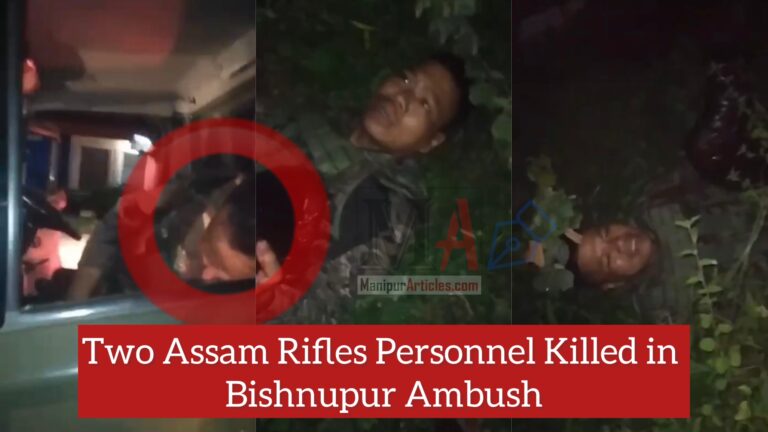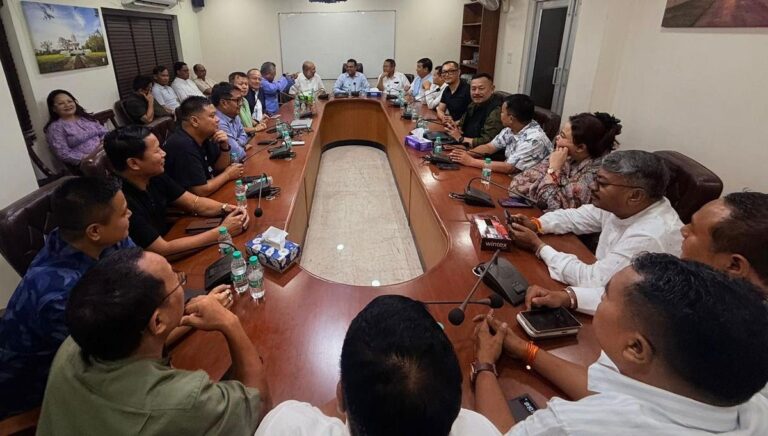Former Manipur Minister’s Call for Action Against BJP MLA Sparks Debate
Summary of the Issue
A former Manipur minister has raised concerns about the lack of action against certain BJP MLAs accused of supporting demands for a separate administration in the state. This controversial issue highlights the ongoing political and social tensions in Manipur. The minister’s call for accountability adds to the broader discussion about governance, communal harmony, and the responsibilities of political leaders in addressing such sensitive matters.
Exploring the Context: A Deep Dive into Manipur’s Political Tensions
Introduction to the Issue
Manipur, a northeastern state of India, has long been a hotspot for political, social, and ethnic challenges. Recent developments have placed a spotlight on seven BJP MLAs accused of backing demands for a separate administration for certain ethnic groups. Former minister Ch. Bijoy has publicly criticized the delay in disciplinary action against these MLAs, citing it as a failure of governance and party accountability.
But why does this matter so much? Beyond the political implications, this debate touches the core of Manipur’s identity and the trust its citizens place in their leaders.
The Demands for Separate Administration
The demand for a separate administration, primarily by certain ethnic groups, has been a contentious issue. It stems from deep-seated grievances about representation, resource allocation, and cultural preservation. When sitting MLAs—especially from the ruling party—are perceived as supporting such divisive demands, it raises serious questions about the integrity of the state’s governance structure.
Former minister Bijoy has called out the ruling BJP’s Manipur unit for inaction, even when the state president has the authority to suspend these MLAs. He also questioned whether the central BJP leadership was aware or complicit in the delay, further complicating the narrative.
The Broader Impact on Manipur’s Stability
The demand for separate administration is not just a political issue—it directly impacts communal harmony in Manipur. The state, home to diverse ethnic communities, has witnessed inter-community clashes, partly fueled by such political divides. This controversy exacerbates existing tensions, making peacebuilding an even greater challenge.
Bijoy’s criticism extends beyond party politics, highlighting the human cost of these conflicts. From economic disruptions to the erosion of social trust, the ripple effects are far-reaching.
Political Accountability and Governance
At the heart of the issue is the question: Who holds the power to enforce accountability? Bijoy has pointed out the inconsistency within the BJP, with state leaders delaying action while condemning similar demands elsewhere. This apparent double standard undermines the party’s stance on national unity and territorial integrity.
What Needs to Happen Next?
- Transparency: The BJP must clarify its position on the MLAs’ alleged involvement.
- Swift Action: If the accusations hold merit, disciplinary measures are essential to restore public trust.
- Dialogue: Engaging with all communities to address their grievances can help ease tensions.
- Strengthening Institutions: Ensuring that governance structures are resilient against political and communal pressures is key to long-term stability.
A Glimpse into the Future
Manipur’s path forward is fraught with challenges, but it’s not without hope. By prioritizing inclusive governance, fostering mutual respect among communities, and holding leaders accountable, the state can aim for a more harmonious future.
FAQs
- Why is the demand for a separate administration significant? It reflects long-standing grievances among ethnic groups, impacting governance and social harmony in Manipur.
- What has the BJP’s response been so far? The party has faced criticism for its perceived inaction, leading to public and political backlash.
- How does this issue affect everyday citizens? It exacerbates communal tensions, disrupts economic activities, and undermines trust in governance.
- What role do political leaders play in such conflicts? Leaders are expected to uphold unity, act transparently, and address legitimate grievances through dialogue.
- What steps can be taken to resolve the conflict? Transparent communication, swift disciplinary action, and inclusive policymaking are critical to addressing the root causes.



